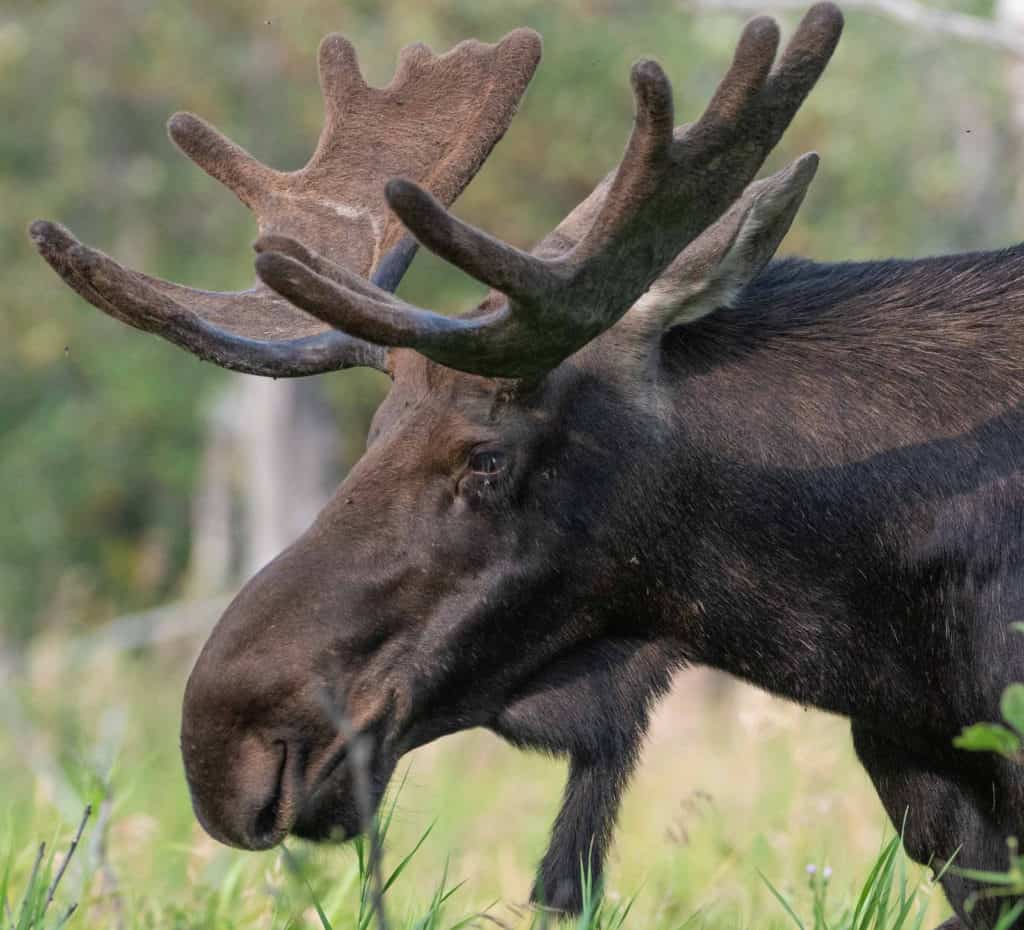
A new project funded by the Minnesota legislature will help researchers better understand how brainworm is transmitted from whitetail deer to moose in northern Minnesota. As the state’s moose population declines, such parasites are blamed for up to a third of moose deaths.
Brainworm are harmless to deer, which serve as carriers. They are then transmitted from deer feces to snails and slugs, which can then be consumed by moose while eating vegetation.
Whitetail deer numbers have been increasing in Minnesota’s moose range in recent years due to habitat changes, global warming, and wildlife management practices. Warmer winters and less snow is helping deer survive where they have not before. Many hunters oppose efforts to reduce the population.

“Generally speaking, there is some reluctance to reduce deer density on the landscape to the level that would halt transmission of brainworm from deer to moose,” says Tiffany Wolf of the University of Minnesota College of Veterinary Medicine.
The rise of deer, and the brainworms they carry, have coincided with drastic declines in moose population. Dwindling moose have also been blamed on climate change, wolf predation, loss of habitat, and more. While brainworms reside in the tissue surrounding deer brains, in moose they tunnel through tissue, causing neurological problems that almost always result in death.
The research will be conducted by scientists from multiple agencies, including the University of Minnesota Veterinary Medicine and the Grand Portage Band of Lake Superior Chippewa. The loss of moose is a critical issue facing tribal members who have long included moose meat in their diets.
“Historically, moose were the primary subsistence species to the Grand Portage Band of Lake Superior Chippewa, but harvests have declined in recent years following declines in Minnesota moose populations,” said Seth Moore, PhD, director of biology and environment at the Grand Portage Band. “Moose are a culturally vital species to the Grand Portage Band. Thus, researching moose health and sustainability with an intention to improve management is critical to reversing the declining trend. We hope to learn how and where brainworm transmission occurs on the landscape so that we can manage habitats to reduce that risk.”
Two years ago, a meeting of stakeholders from the Minnesota Department of Natural Resources, the University of Minnesota, and the Grand Portage band identified major gaps in understanding of brainworm. The new project is intended to fill those gaps.
Intensive investigation
With a $400,000 three-year grant from the Minnesota Environmental and Natural Resources Trust Fund, designated by the Legislative-Citizen Commission on Minnesota Resources, the scientists will embark on an ambitious study.
Earlier work on the subject had been funded by nearly $10,000 in contributions to a crowd-funding campaign, but the new grant will allow a full-fledged study.
The first of three phases will be to map where deer and moose range overlap in the region. By combining that with other climate and habitat data, the scientists will identify where the highest risk of deer-moose transmission exists.
In the second phase, researchers will try to identify which species of slugs and snails are most often consumed by deer and moose in different habitat types. This will be accomplished by collecting deer and moose pellets. The final phase will be to map brainworm genetics, allowing them to determine what types of habitat are most conducive to transmitting the parasites to moose.
Ultimately, the scientists hope to find ways to manage habitat in ways that could minimize the risk of brainworm transmission.
“It’s certainly a complex pathway, and there are a lot of gaps in our knowledge about where and when transmission to moose occurs. But, thanks to this support, we have an opportunity to close some of those gaps.”
More information
- Helping Minnesota’s moose, June 5, 2019 – University of Minnesota College of Veterinary Medicine
- Next step in helping Minnesota’s moose: Understand brainworm transmission to find solutions (PDF) – Environment and Natural Resources Trust Fund

